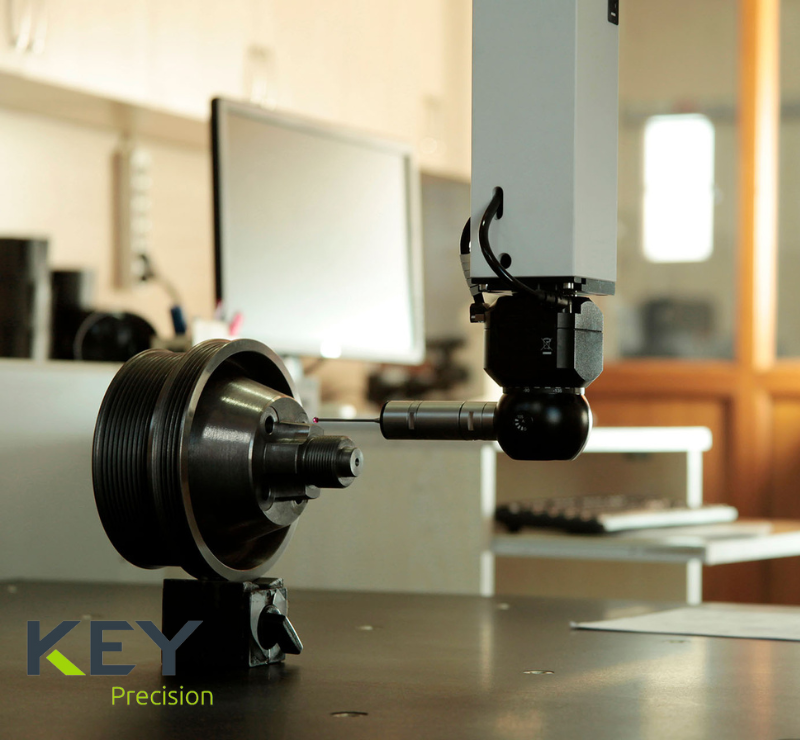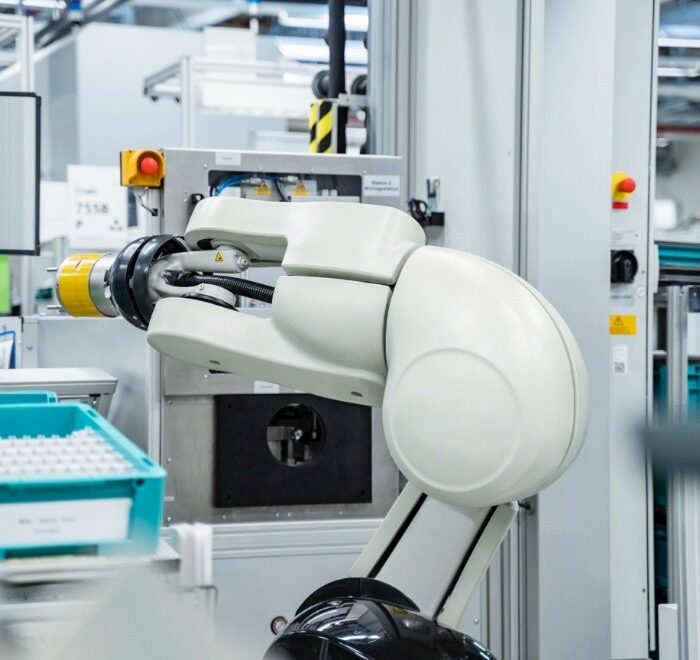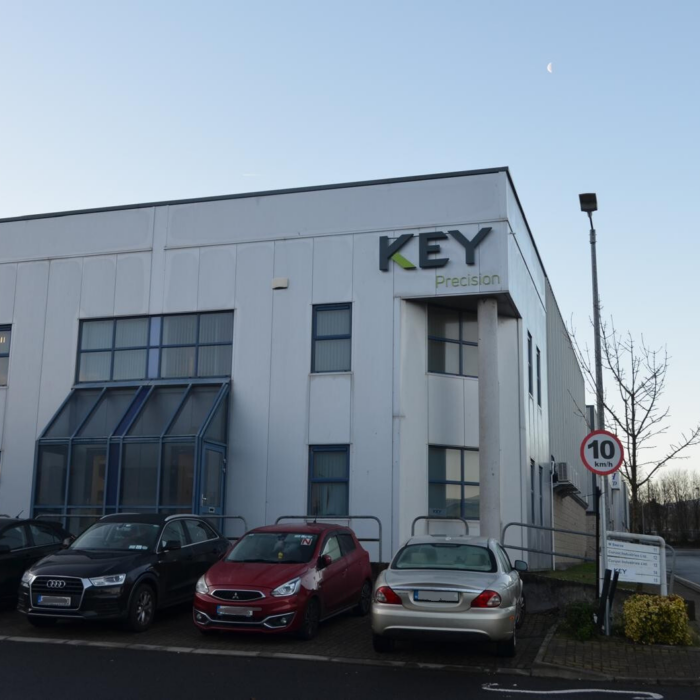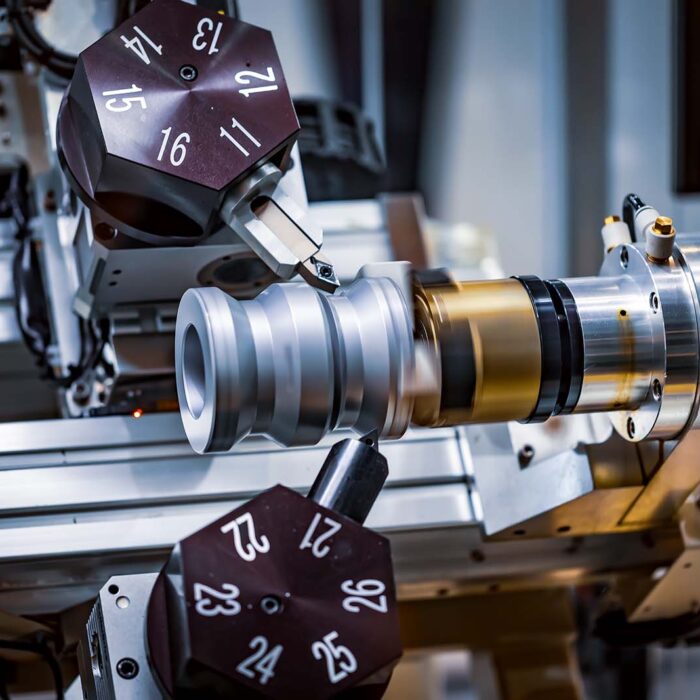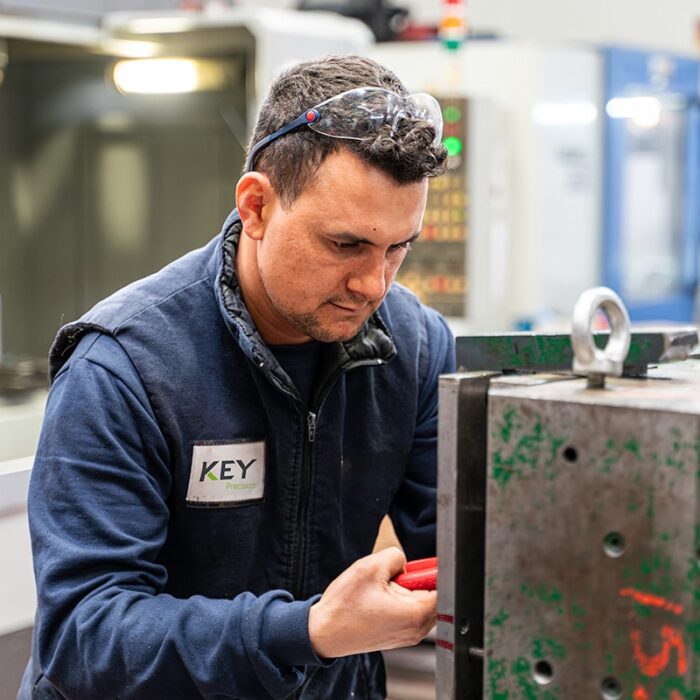Metrology is the science of measurement. It encompasses the study, application, and understanding of both theoretical and practical aspects of measurement. Metrology plays a crucial role in virtually every scientific and engineering discipline, ensuring accuracy, consistency, and reliability in measurement systems. The field is often categorised into three main branches:
- Scientific Metrology: The highest level of measurement, concerned with the development of new measurement methods and the definition of units.
- Industrial Metrology: Ensures the functionality of instruments and measurement systems in industrial applications.
- Legal Metrology: Focuses on measurements related to regulatory and legal standards.
In industrial and precision engineering, metrology is indispensable for quality control, product development, and ensuring the functionality of machinery. In particular, in sectors such as plastics manufacturing and precision engineering, metrology ensures that parts and products meet specific tolerances, dimensional accuracy, and performance standards.
The Role of Metrology in Plastics Manufacturing
The plastics manufacturing industry is highly dependent on precision to ensure the quality and performance of the final product. From injection moulding to extrusion, ensuring that plastic components meet their required specifications is essential to both functionality and customer satisfaction. Here’s how metrology plays a role in this process:
- Dimensional Accuracy and Quality Control In plastics manufacturing, especially for components that must fit or function with other parts, dimensional accuracy is critical. For instance, components produced for automotive, medical, or electronic industries often have tight tolerances. Any deviation in size or shape can lead to assembly issues, product failures, or non-compliance with safety standards.
Metrology provides precise measurement systems such as coordinate measuring machines (CMMs), optical systems, and laser scanners to inspect the dimensional accuracy of parts. These tools ensure that the plastic components produced match their design specifications, verifying features like thickness, diameter, and curvature.
- Inspection During Production Plastic materials tend to shrink, warp, or deform during cooling, particularly in injection moulding processes. Real-time or in-line metrology solutions, such as automated vision systems and laser profilometers, can monitor and adjust production processes on the fly, catching potential issues before they cause large-scale defects. This helps reduce waste, save costs, and improve overall efficiency in the manufacturing process.
- Material Characterisation Beyond dimensional accuracy, metrology also helps in assessing the properties of the plastic material itself. Techniques such as thermal analysis and spectroscopy are used to characterise properties like thermal expansion, elasticity, and tensile strength. This ensures that the plastic material meets the required standards for its intended application.
- Tooling and Mold Calibration For injection moulding, the quality of the mould directly impacts the final product. Metrology ensures that moulds are calibrated to precise specifications to prevent defects in the plastic components. Accurate measurement tools and laser trackers help check the integrity of moulds and tooling to prevent issues like part flashing, sink marks, or warping.
The Role of Metrology in Precision Engineering
Precision engineering, as its name suggests, demands extreme accuracy in the manufacturing of components. This sector includes industries like aerospace, automotive, and medical devices, where the margin for error is almost zero. Metrology is the foundation of precision engineering, playing a central role in the following areas:
- Tolerance Measurement Precision engineering requires components to fit and function seamlessly, often within microns (millionths of a meter) of tolerance. Metrology enables the use of advanced equipment like interferometers, CMMs, and surface roughness testers to measure ultra-fine tolerances in parts. Whether it’s the smooth surface of an engine part or the exact diameter of a medical implant, these measurements are critical for the performance and safety of the final product.
- Surface Finish Inspection Surface finish plays a significant role in the functionality and longevity of precision-engineered components. Metrology tools such as profilometers and optical measurement systems are used to assess surface roughness, ensuring the smoothness or texture of a component aligns with design specifications. This is particularly important in high-precision applications like optics or mechanical seals.
- 3D Metrology and Scanning In precision engineering, 3D metrology has become increasingly popular for inspecting complex geometries. 3D laser scanning and structured light scanners allow engineers to quickly and accurately measure complex parts and assemblies, capturing both external and internal features. This is especially useful in reverse engineering, prototype validation, and creating digital twins for advanced simulations.
- Calibration of Instruments and Machines In any precision manufacturing environment, machines and instruments must be periodically calibrated to ensure that measurements remain accurate. Metrology standards and tools, such as gauge blocks, calipers, and laser interferometers, are used to regularly calibrate and verify the performance of manufacturing machines, from CNC (Computer Numerical Control) mills to 3D printers. Regular calibration minimises errors in production and ensures that products remain consistent.
Final Takeaway
Metrology is a cornerstone of quality and precision in both plastics manufacturing and precision engineering. Whether it’s ensuring that plastic parts meet exact tolerances or measuring the smoothness of a machined surface, metrology provides the tools and techniques required for producing high-quality, reliable products. With advancements in automation, digital technologies, and non-contact measurement methods, the future of metrology promises even greater precision and efficiency in manufacturing processes. As industries continue to demand more stringent quality and performance standards, metrology’s role will only grow in importance, driving innovation and improvement across sectors.

